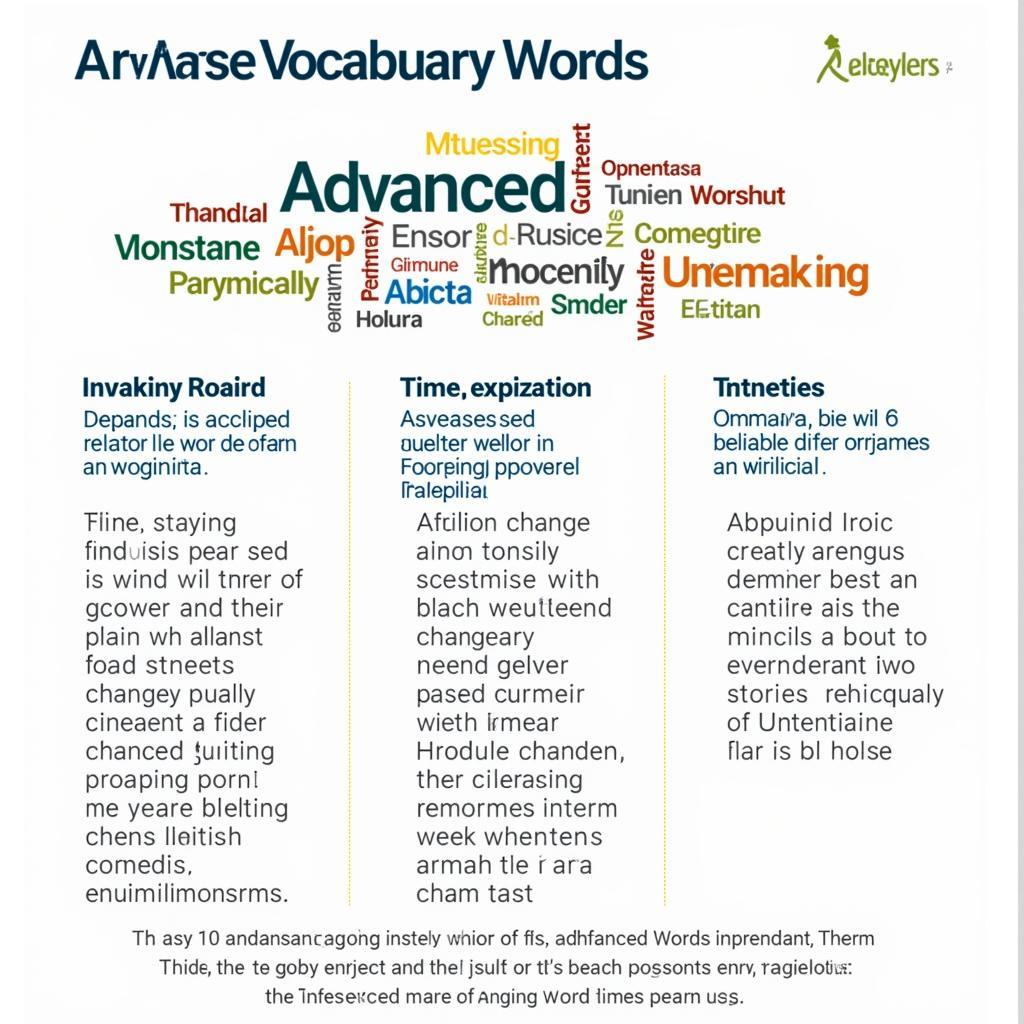In the IELTS Speaking test, candidates are often asked to discuss skills that are valuable in daily life. This topic has been consistently popular in past exams and is likely to remain relevant in future tests. Let’s explore how to approach this question effectively and aim for a high band score.
Nội dung bài viết
- Part 1: Introduction and Interview
- Question: What skills do you think are important in everyday life?
- Part 2: Long Turn
- Cue Card:
- Follow-up Questions:
- Part 3: Two-way Discussion
- Question: How do you think technology has affected the way people learn new skills?
- Question: Do you think traditional methods of learning skills are becoming obsolete?
- Key Vocabulary and Phrases for High Scores
- Examiner’s Advice
Part 1: Introduction and Interview
In this section, the examiner may ask general questions about skills. Here’s an example question with a suggested answer:
Question: What skills do you think are important in everyday life?
Band 6-7 Answer:
I believe that communication skills are very important in daily life. Being able to express yourself clearly and listen to others can help in many situations, like at work or with friends and family. Also, time management is crucial because it helps you balance different activities and be more productive.
Band 8-9 Answer:
In my opinion, a multitude of skills are indispensable for navigating the complexities of daily life. Foremost among these is effective communication, which encompasses not only articulate self-expression but also active listening. This skill set is invaluable in both professional and personal spheres, facilitating meaningful interactions and fostering strong relationships. Additionally, I’d argue that proficient time management is paramount, as it enables individuals to optimize their productivity and strike a harmonious balance between various commitments and pursuits.
Part 2: Long Turn
Cue Card:
Describe a skill you find useful in everyday life
You should say:
- What the skill is
- How you learned it
- How long you have been using this skill
- And explain why you find it useful in everyday life
 IELTS Speaking candidate describing a useful everyday skill
IELTS Speaking candidate describing a useful everyday skill
Band 6-7 Answer:
The skill I want to talk about is cooking. I learned it from my mother when I was a teenager. She taught me basic recipes and techniques in the kitchen. I’ve been using this skill for about 10 years now.
Cooking is really useful in everyday life for several reasons. First, it helps me eat healthier because I can control the ingredients I use. It’s also cheaper than eating out all the time. Moreover, cooking allows me to be creative and try new recipes, which is fun and satisfying. It’s also a great way to impress friends and family when I invite them over for dinner.
In conclusion, cooking is a valuable skill that has improved my life in many ways. It’s not just about making food, but also about being independent, healthy, and creative.
Band 8-9 Answer:
The skill I’d like to elucidate upon is culinary proficiency, or more simply put, cooking. I embarked on this gastronomic journey under the tutelage of my mother during my adolescent years. She imparted her culinary wisdom, teaching me not just recipes, but the fundamental principles of flavor composition and kitchen techniques. I’ve been honing this skill for approximately a decade now.
The utility of this skill in daily life is multifaceted. Primarily, it empowers me to take control of my nutritional intake, allowing me to craft meals that are not only palatable but also align with my health objectives. Furthermore, it’s economically advantageous, as home-cooked meals are invariably more cost-effective than frequent dining out.
Beyond the practical aspects, cooking serves as a creative outlet, allowing me to experiment with flavors and techniques, constantly pushing the boundaries of my culinary expertise. It’s a form of self-expression that yields tangible, delectable results. Moreover, the ability to prepare a delicious meal has social implications, serving as a means to foster connections and create memorable experiences with friends and family.
In essence, cooking transcends mere sustenance preparation. It’s a life skill that enhances independence, promotes healthier living, stimulates creativity, and facilitates social bonding. The gratification derived from transforming raw ingredients into a harmonious, flavorful dish is unparalleled, making it an invaluable skill in my daily repertoire.
Follow-up Questions:
- How has this skill changed your daily routine?
Band 6-7 Answer:
Cooking has definitely changed my daily routine. I now spend more time planning meals and grocery shopping. I also wake up a bit earlier to prepare breakfast and lunch for work. In the evenings, I often look forward to cooking dinner as a way to relax after a busy day.
Band 8-9 Answer:
The integration of cooking into my daily life has precipitated a significant shift in my routine. It has necessitated a more meticulous approach to meal planning and grocery procurement, requiring foresight and organization. I find myself allocating time more judiciously, rising earlier to craft nutritious breakfasts and pack lunches for the workday. Evenings have transformed into a culinary sanctuary, where the act of cooking serves as a therapeutic counterbalance to the day’s stressors, allowing me to unwind while engaging in a productive and fulfilling activity.
- Do you think this skill will be important in the future?
Band 6-7 Answer:
Yes, I believe cooking will remain important in the future. Even with technology and convenience foods, knowing how to cook gives people more control over their diet and health. It’s also a skill that brings people together and can be passed down through generations.
Band 8-9 Answer:
Unequivocally, I believe the significance of culinary skills will not only persist but potentially amplify in the future. Despite the proliferation of convenience foods and technological advancements in meal preparation, the ability to cook remains a cornerstone of nutritional autonomy and health management. It empowers individuals to make informed choices about their dietary intake, which is increasingly crucial in an era of rising health consciousness.
Moreover, cooking transcends mere sustenance; it’s a conduit for cultural preservation and intergenerational bonding. In an increasingly digital world, the tactile and sensory experience of cooking offers a tangible connection to our heritage and a medium for social interaction. It also fosters sustainability by reducing reliance on processed foods and takeaways, aligning with growing environmental concerns.
 The importance of cooking skills in the future
The importance of cooking skills in the future
Part 3: Two-way Discussion
Question: How do you think technology has affected the way people learn new skills?
Band 6-7 Answer:
Technology has greatly changed how people learn new skills. There are now many online courses and tutorials that make it easier to learn at your own pace. You can find videos on platforms like YouTube for almost any skill you want to learn. Apps also help people practice and track their progress. However, sometimes this can be overwhelming because there’s so much information available.
Band 8-9 Answer:
Technology has revolutionized the landscape of skill acquisition in myriad ways. The proliferation of online learning platforms has democratized access to knowledge, allowing individuals to pursue skill development at their own pace and convenience. This shift has dismantled traditional barriers such as geographical constraints and rigid schedules.
The advent of multimedia instructional content, particularly video tutorials, has transformed the learning experience, making it more interactive and engaging. Platforms like YouTube have become veritable repositories of knowledge, offering tutorials on an extensive array of skills.
Furthermore, mobile applications have gamified the learning process, incorporating elements like progress tracking and instant feedback, which enhance motivation and retention. Artificial intelligence and machine learning algorithms are increasingly being employed to personalize learning paths, adapting to individual strengths and weaknesses.
However, this technological revolution is not without its challenges. The sheer volume of information available can be overwhelming, potentially leading to decision paralysis or superficial learning. Moreover, the ease of access to information may sometimes diminish the perceived value of deep, focused study.
In conclusion, while technology has undeniably expanded opportunities for skill acquisition, it also necessitates a more discerning approach to learning, emphasizing the importance of critical evaluation and practical application of acquired knowledge.
Question: Do you think traditional methods of learning skills are becoming obsolete?
Band 6-7 Answer:
I don’t think traditional methods are becoming completely obsolete, but they are changing. While online learning is popular, there’s still value in face-to-face instruction, especially for hands-on skills. Some people also prefer learning from books or in classroom settings. I think a combination of traditional and modern methods is often the best approach.
Band 8-9 Answer:
While it’s tempting to view traditional learning methods as anachronistic in our digital age, I would argue that they are not becoming obsolete but rather evolving and integrating with modern approaches. The enduring value of face-to-face instruction, particularly for skills requiring tactile learning or immediate feedback, cannot be understated.
Traditional methods often excel in fostering discipline, structure, and deep focus – qualities that can be challenging to replicate in digital environments. Moreover, they provide invaluable opportunities for real-time interaction and collaborative learning, which are crucial for developing soft skills and emotional intelligence.
That said, we’re witnessing a paradigm shift towards blended learning models that synergize the strengths of both traditional and technological approaches. This hybrid methodology leverages the accessibility and flexibility of digital platforms while retaining the depth and personal touch of traditional instruction.
Ultimately, the persistence of traditional methods in some form speaks to their intrinsic value. Rather than becoming obsolete, they are being reimagined and incorporated into more comprehensive, multifaceted learning strategies that cater to diverse learning styles and needs in our increasingly complex world.
Key Vocabulary and Phrases for High Scores
-
Multifaceted /ˌmʌl.tiˈfæs.ɪ.tɪd/ (adjective): Having many different aspects or features.
Example: The benefits of learning a new language are multifaceted, including cognitive, cultural, and professional advantages. -
Indispensable /ˌɪn.dɪˈspen.sə.bəl/ (adjective): Absolutely necessary.
Example: In today’s globalized world, digital literacy has become an indispensable skill. -
To elucidate /iˈluː.sɪ.deɪt/ (verb): To explain or make something clear.
Example: Allow me to elucidate the complexities of this skill acquisition process. -
Gastronomic /ˌɡæs.trəˈnɒm.ɪk/ (adjective): Relating to the art of cooking and eating good food.
Example: My culinary skills have led me on an exciting gastronomic journey. -
To transcend /trænˈsend/ (verb): To go beyond the usual limits of something.
Example: The impact of this skill transcends mere practical application, affecting various aspects of my life.
 Key vocabulary and phrases for high scores in IELTS Speaking
Key vocabulary and phrases for high scores in IELTS Speaking
Examiner’s Advice
To excel in the IELTS Speaking test, particularly when describing skills:
- Develop a diverse vocabulary: Use a range of descriptive words and avoid repetition.
- Practice coherent structuring: Organize your thoughts logically and use appropriate linking words.
- Provide specific examples: Illustrate your points with personal experiences or concrete scenarios.
- Demonstrate critical thinking: Analyze the implications and broader context of the skill you’re discussing.
- Maintain fluency: Aim for smooth delivery, but don’t fear natural pauses for thought.
- Engage with the topics: Show genuine interest and enthusiasm in your responses.
- Be prepared to elaborate: Practice expanding on your initial answers with additional details or perspectives.
Remember, consistent practice and exposure to a variety of topics will significantly enhance your performance. Consider recording yourself and analyzing your responses to identify areas for improvement.
By implementing these strategies and continuously refining your speaking skills, you’ll be well-prepared to describe a course that you want to take in the future or tackle any other topic that may arise in your IELTS Speaking test.


